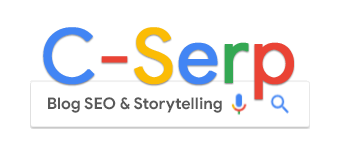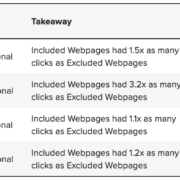Why PR is becoming more essential for AI search visibility

Public relations (PR) is no longer just a supporting tactic, it’s becoming a core strategy for brands looking to stay visible in the age of AI search.
AI-powered search engines increasingly rely on brand mentions, reputation, and authority signals pulled from across the web – areas where PR excels.
In this new landscape, the question isn’t whether PR matters to search – it’s how much it now leads the charge.
AI is changing human content discovery habits
The rise of AI-powered search engines is radically changing how people discover information online.
Traditional “blue links” on Google’s search results pages (SERPs) are being displaced by:
- AI-generated summaries like Google’s AI Overviews.
- Conversational interfaces like ChatGPT and Claude.
- Standalone AI search platforms like Perplexity AI and Bing Copilot.
ChatGPT alone has seen impressive growth, doubling its users in the past six months and reaching 400 million weekly active users by February 2025.
The product’s web search capabilities are hailed as a killer feature.
Google is also no longer the search engine it used to be. It’s adopting AI search, in the form of AI Overviews and AI Mode.
AI Overviews appear on billions of searches per day, so clearly, people are increasingly relying on conversational answers rather than sifting through multiple search results.
Meanwhile, the “zero-click” phenomenon – where users find their answers without clicking on a website – is growing, further diminishing the value of traditional organic listings.
Zero-click searches now account for some 60% of all Google searches, per a recent SparkToro study.
Traditional SEO is about driving organic search referral traffic to your website.
Optimizing for AI search is about surfacing your brand name in the context of answers and summaries.
On the other hand, people do still click through from AI answers to websites.
Media sources that appear in these overviews can enjoy more clicks, while some research shows that sources that don’t show up see declining performance.
For example:
- Transactional queries: Web pages featured in AI Overviews receive 3.2 times more clicks than those in the traditional “blue link” results below.
- Informational queries: Pages included in AI Overviews get 1.5 times more clicks than those that don’t appear.

LLMs surface content very differently from traditional web search.
AI search prioritizes entities (like brands and people), reputation, and authority signals gathered from across the web, alongside traditional SEO factors like backlinks and content relevance.
This means that brands must optimize not just for keywords, but for contextual reputation and entity prominence.
On the other hand, there is reason to believe that LLMs could be drawing information from SERPs.
Up to 75% of the links surfaced in Google’s AI Overviews come from pages that already rank in the top 12 traditional organic search results, a 2024 study found.
This shows a heavy reliance on established authority while introducing greater emphasis on entity recognition in Google’s AI algorithms.
Even when AI models look beyond high-ranked SEO material, they are likely to turn to the same sites that traditional search engines view as authoritative.
The overlap is nowhere near 100%, but it’s high enough to inform your earned media strategy.
The sources that AI search engines prioritize typically include:
- Timely and authoritative news websites.
- Reputable industry publications.
- Knowledge platforms.
- Discussion forums.
These are the types of media properties that PR firms have close relationships with.
What AI search means for the role of PR
Historically, PR complemented SEO by earning high-value, organic backlinks, securing brand mentions, and building credibility through media placements.
Coverage in reputable outlets helped drive organic traffic and strengthen a site’s domain authority, influencing Google’s ranking factors.
Today, classic PR tactics are being reimagined for the AI era.
PR-driven mentions in high-authority media now influence human readers and inform AI training models.
Fractl’s Kelsey Libert observes that:
- While “earning backlinks from high-authority sites was the golden ticket to building domain authority, trust signals, and rankings,” that’s not necessarily the case any more.
- “LLMs don’t ‘rank’ content the same way Google does. They don’t crawl and index live web pages. They generate responses based on pre-trained data, considering word frequency, contextual relevance, and surrounding content,” she adds.
While AI search relies heavily on training data, some models also draw on real-time web data, and new tech like RAG-integrated AI agents may also soon change these dynamics.
Many leading AI search solutions are built more directly on data from existing search engines (such as Google’s AI Overviews).
Others are more independent (such as Perplexity AI, which prioritizes high-quality, frequently searched topics based on user behavior).
- “PR pros are perfectly positioned to help brands become discoverable through AI,” Orbit Media’s Andy Crestodina explains.
- “The goal is a large, visible digital footprint, but with AI, it’s more about providing rich, descriptive content that the AI can understand and recommend. It’s less about traditional links and more about ensuring your brand and expertise are well-represented in text.”
This shift demands a recalibration of PR goals.
It’s not enough to land a link or even a mention – the content must associate your brand with key topics and attributes in ways AI can easily ingest, understand, and reference.
Dig deeper: Your 2025 playbook for AI-powered cross-channel brand visibility
PR mentions and authority signals for AI
AI systems are hungry for high-quality, context-rich signals when generating answers.
Brand mentions in trusted publications are now critical to building topical authority and entity recognition.
About 61% of the signals that inform AI’s understanding of brand reputation originate from editorial media sources, recent analysis from Hard Numbers concludes.

Consistency also matters to cement your brand association.
If your brand steadily appears in the same contextual topics, such as creativity, reliability, accessibility, or innovation, the AI will learn to connect it with those brand values.
In a similar vein, research by Kevin Indig indicates that brand search volume correlates strongly with visibility in AI chatbot searches.
This points to the importance of using PR to build buzz around your brand name, as opposed to your product category’s keyword clusters.

This also reinforces the argument that frequent mentions are vital for shaping the ways that AI perceives your brand.
Influential mentions have outsized importance, making it crucial to choose your PR targets wisely, and it’s worth it to stay active in conversations on trusted platforms.
Specific factors contributing to entity authority in AI include:
- Trustworthiness of the mentioning source: Mentions in trade publications and local news outlets carry more weight than brand blogs.
- Contextual alignment: Mentions must consistently associate the brand with specific expertise or values.
- Structured data support: Brands backed by knowledge panels, Wikidata entries, and schema.org markup are better recognized by AI systems.
Because AI search blends traditional ranking signals with newer, entity-based reasoning, strategic PR placements directly influence how AI “understands” and “recommends” brands.
In the months ahead, we’re likely to see PR agencies (or hybrid PR-SEO agencies) release case studies demonstrating how they boosted a client’s visibility in AI answers thanks to earned media mentions.
For now, we can chew on a report from Semrush that identified a leaderboard of websites currently enjoying more traffic referrals from ChatGPT than from Google blue links.
These domains span industries and mainstream recognition, suggesting that their earned media strategies have yielded these results.
For example, a software product for insurance appraisers has steadily seen around 100 backlinks pointing to its domain over the past two years, according to Ahrefs.

The company has secured far more media mentions in the same time period, per Muck Rack Trends.

How marketers can adapt to this new reality
To future-proof your search visibility, marketers and SEOs must think differently.
Here’s how to integrate PR into your AI search strategy effectively:
- Collaborate closely with PR teams. SEO and PR can no longer operate in silos. Align on target topics, audiences, and messaging.
- Prioritize high-quality mentions. Target media outlets and influencers that are seen as authoritative by both humans and AI engines.
- Build strong topical authority. Consistently secure coverage around core topics you want to own in AI search results.
- Be quotable. Craft unique insights, data points, or provocative quotes that journalists and bloggers want to cite.
- Focus on entity optimization. Ensure your brand is well-represented in structured data, Wikipedia, Google’s knowledge graph, and other trusted databases.
- Monitor your brand mentions. Leading brand monitoring tools can help you track how and where your brand is referenced, often yielding ideas for more coverage. There are also some emerging solutions for tracking AI answer visibility trends.
- Measure differently. Watch for upticks in branded search volume, direct traffic, and mentions in AI summaries. These are the new KPIs for search success.
Dig deeper: How to optimize your 2025 content strategy for AI-powered SERPs and LLMs
PR is the future of search visibility
AI search is reshaping the rules of discovery, elevating brand reputation, mentions, and authority over traditional SEO tactics.
In this new environment, PR has shifted from being a supporting act to a starring role in digital marketing strategies.
Brands that invest today in strategic, AI-savvy PR – earning influential mentions, building consistent topical authority, and proactively shaping their digital footprints across domains – will be the ones leading tomorrow’s search landscape.
The future of search isn’t just about links and keywords.
It’s about being talked about accurately, contextually, and authoritatively, in the right places, and by the right voices.
In the age of AI, visibility begins with reputation. If you’re not being mentioned, you’re not being found.


